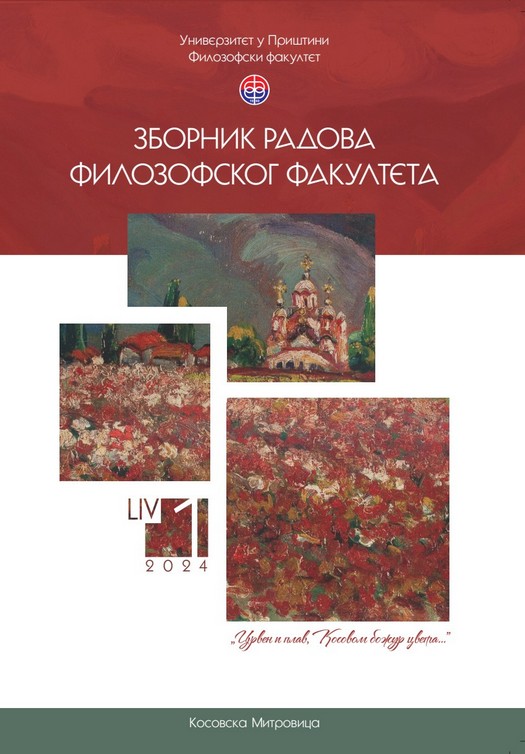Хумор и сатира у модерном пикарском роману "Тхе бодигард" Радивоја Бојичића (oд етнопсихолошке анегдоте до друштвене критике)
Humor and Satire in the Modern Pictorial Novel "The Bodyguard" by Radivoje Bojičić (from ethnopsychological anecdote to social criticism)
Author(s): Marija Jeftimijević MihajlovićSubject(s): Serbian Literature
Published by: Филозофски факултет, Универзитет у Приштини
Keywords: humor; satire; absurdity; grotesque; comic exaggeration; comic characterization.
Summary/Abstract: Starting from Northrop Frye’s claim that one of the main characteristics of satire is the element of humor based on the feeling of the grotesque or absurd, but that satire is a critical presentation of social, political and other situations, this paper discusses the elements of humor and satire in the novel The Bodyguard by Radivoje Bojičić, which is already defined in the title as a “pictorial novel”. Although pictorial novels in Serbian literature do not have a long and solid tradition, Bojićič’s novel about a bodyguard, who as a kind of anti-hero tells about his life’s vocation full of temptations and risks, with strong touches of irony, satire and parody, as well as humor that affirms values contrary to those that are recognizable at first glance, enters the ranks of original and self-contained achievements, thus strengthening the humorous-satirical tradition embodied mostly in the work of Branislav Nušić and of Branko Ćopić.The writer achieves a special dimension of the comic in the novel by using the procedure of comic characterization of the main character, the procedure of comic exaggeration (caricatural, hyperbolic, grotesque), the procedure of inserting intertextual sections, in which the main character parodically refers to well-known phrases, platitudes and quotations from domestic literature and culture, and using a linguistic corpus and terminology appropriate to the world in which the main character found himself, but putting in the foreground precisely the language of the main character and highlighting his origin, social status and special dialectal “literacy”. Because of all this, it is possible to read this novel not only as a humorous and satirical piece but also as an ethnopsychological anecdote about a primitive, aggressive and naïve man who must be first in everything – especially in heroism.
Journal: Зборник радова Филозофског факултета у Приштини
- Issue Year: 54/2024
- Issue No: 1
- Page Range: 155-164
- Page Count: 10
- Language: Serbian

